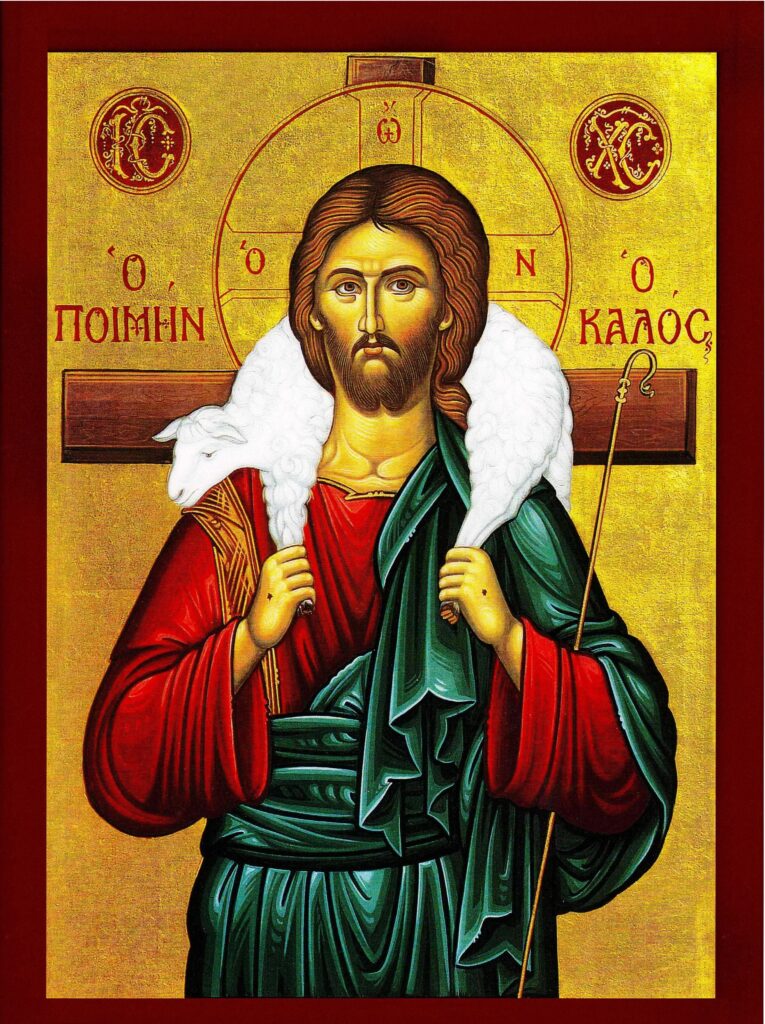In the name of the Father, and of the Son, and of the Holy Spirit, one God, Amen.
I, dear brothers and sisters in Christ, was set in the Paradise of Delight yet I chose to eat of the fruit of the Tree of the knowledge of Good and Evil. And having been cast out of Eden I turn back and see that which I have lost and I weep. And here, at the bottom of the Mountain of God, I see two pathways for my return: on the one hand the path of boldness and self-righteousness while on the other the path of humility and righteousness.
The former is tempting. Each step brings with it a justification of the work I have done: I may show off my achievements, demonstrate my mental abilities, declare to all my piety and virtue. This is the way of pagan gods—“I am rich and will give to you riches,” and is shared by many in our world. Politicians will declare their abilities above their opposition, companies will proclaim their products as the best, salesmen will broadcast any statistic supporting their wares.

And yet, God calls himself, “the God of Abraham, the God of Isaac, the God of Jacob,” three nomads who have little significance on the world stage; God identifies himself as “the God of the Hebrews,” slaves in Egypt under the domination of Ra, Osiris and Horus. And in these Last Days, he,
made himself of no reputation, taking the form of a bondservant, and coming in the likeness of men.
Philippians 2:7–8
And being found in appearance as a man, he humbled himself and became obedient to the point of death, even the death of the cross.
And so I see in the first path, the path of boldness and self-righteousness, a route which will not bring me back to Paradise, a route which like the way of the world only leads to death, since nothing which is proud may approach our God of humility (see St Sophrony of Essex, ‘We Shall See Him as He Is,’ p. 29). And so, if I want to return to the Lord, if I want to ascend the Mountain of God, I must—as God himself—be humble, I must accept “that Christ Jesus came into the world to save sinners, of whom I am chief.” (First Timothy 1:15)
We start, today, to use the Triodion, the book of service texts taking us all the way from now to Great and Holy Saturday, and we start by learning the path, the route, which will return us to the Paradise of Delight, the way of humility. “But the tax collector, standing far off, would not even lift up his eyes to heaven, but beat his breast, saying, ‘God, be merciful to me a sinner!’” Because the tax collector saw in that moment that all he could rely on was the mercy of God, but it was precisely this mercy which meant he “went down to his house justified rather than the other.”
You and I, dear brothers and sisters in Christ, can, too, call on the mercy of God. Not putting up any defence, not putting up any justification, but accepting our sin and weaknesses and calling on the name of the Lord. And if we do this—without turning this into a deal or transaction—we too may be justified by the Lord since “he who humbles himself will be exalted.”
Let this be our prayer, our offering, our desire: that we boast not in our own powers and our own achievements but in the grace and mercy of the Lord (see First Corinthians 1:31) and so be made worthy to receive in all joy the Resurrection of our Lord.
To our risen and glorified God and Saviour Jesus Christ, who humbled himself and was obedient to the point of death, even the death of the cross, be all glory, honour and worship, together with his unoriginate Father and the All-holy, Good and Life-giving Spirit. Amen.
Timothy, my son, you have observed my teaching, my conduct, my aim in life, my faith, my patience, my love, my steadfastness, my persecutions, my sufferings, what befell me at Antioch, at lconion, and at Lystra, what persecutions I endured; yet from them all the Lord rescued me. Indeed all who desire to live a godly life in Christ Jesus will be persecuted, while evil men and impostors will go on from bad to worse, deceivers and deceived. But as for you, continue in what you have learned and have firmly believed, knowing from whom you learned it and how from childhood you have been acquainted with the sacred writings which are able to instruct you for salvation through faith in Christ Jesus.
— Second Timothy 3:10–15
The Lord said this parable, “Two men went up into the temple to pray, one a Pharisee and the other a tax collector. The Pharisee stood and prayed thus with himself, ‘God, I thank you that I am not like other men, extortioners, unjust, adulterers, or even like this tax collector. I fast twice a week, I give tithes of all that I get.’ But the tax collector, standing far off, would not even lift up his eyes to heaven, but beat his breast, saying, ‘God, be merciful to me a sinner!’ I tell you, this man went down to his house justified rather than the other; for everyone who exalts himself will be humbled, but he who humbles himself will be exalted.”
— Luke 18:10–14
